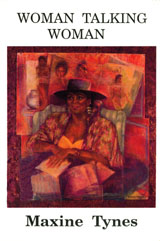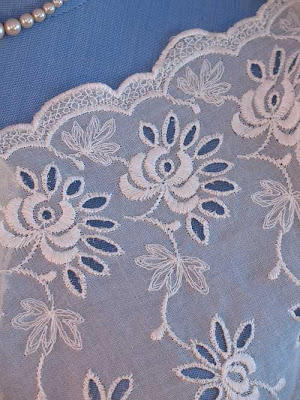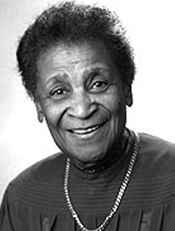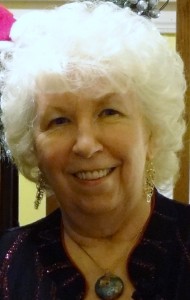(February is African History Month. This is a piece from my archives, first published in 1993.)

(Maxine Tynes)
Maxine Tynes was born and raised in Dartmouth, where her heritage goes back to the time of the Black Loyalists in Nova Scotia. She is a graduate of Dalhousie University and was a high school teacher of English. She has done freelance broadcast work both regionally and nationally.
Maxine is a poet and author. Among her books are: Borrowed Beauty; Woman Talking Woman; Save the World for Me; and The Door of My Heart.


 .
.
She has been named the Milton Acorn People’s Poet of Canada and the Dartmouth Regional Library has named a room in her honour.
She has been awarded an honourary doctorate of human letters by Mount Saint Vincent University and was awarded the Governor General’s Canada 125 medal in recognition of contribution to Canada, to compatriots and to community. She was the first Canadian of African descent to be named a member of the Board of Governors of Dalhousie University.
I interviewed her in the Maxine Tynes Room at the Alderney Gate Library in Dartmouth.
Maxine: I’m one of those Maritimers who will never move very far away from home. I grew up right here beside the railway, just a stone’s throw from where we’re sitting in this library. It was a very good place to grow up, in the heart of downtown Dartmouth.
There was a lot a traffic in and out of our house because we were so central. All of the neighbourhood kids congregated at the Tynes’ house. My mother knew where her kids were every minute of the day. It didn’t matter if she was thinking about her six-month-old, her 16-year-old or her 26-year-old, or her 36-year-old, she knew precisely where each was at all times.
My father worked at the shipyard which meant it was a five minute walk to work, down the track and around the corner. There was a lot of traffic home with him. He brought the world through our front door to our dinner table – daily, weekly, nightly, yearly. He was a big, gregarious man, he loved life, and people just naturally took to him.
You could imagine an environment like the shipyard, where people were coming from the four corners of the world for short stays or long stays for boat repair and there was this man who always made it his business to meet and greet the stranger. It didn’t matter to him that this Captain spoke Greek or French or Russian.
My mother, on the other hand, was juggling a dozen children plus this man and plus whomever else he brought home. But like all good Maritime women or probably all working-class women, that pot is bottomless and endless. You know, we Maritimers, we’ll throw an extra fish in, a few potatoes and onions in, and the chowder feeds the multitudes.
And so what convinced me that I would be able to speak and write and string poems together and actually have people read them and want to read them and ask for more?
Early days told me many things before I was conscious of the telling: we always had to make every day count and my mother, probably like your mother, most people’s mothers had all these little homilies and little lessons about life, these little philosophies that she would drop upon our head as easily as she would pull on a stocking cap or braid up our hair at night and so time and again we heard things like, “if something’s worth doing it’s worth doing well,” “if you don’t believe in yourself nobody else will,” “if you don’t take a chance you won’t know what you can do and what you cannot do,” and always, “try, do your best and nobody can ask any more than that.”
Most wonderful things that have been planted in your mind, in your little childhood heart and soul, you probably felt it was going in one ear and out the other. But for somebody who would put pen to paper eventually, it meant that I have instilled within me an intrinsic belief in self. While I was tightly reined in with the rest of the brood, in a sense my parents offered a kind of freedom that is hard to come by: the freedom to think for oneself and believe in oneself, as long as you feel you’re doing and saying the right thing to the best of your ability.
The family has disintegrated. Our parents knew our lives intimately: who we got connected with; what we got from that; what changes we went through as a result of being exposed to these young people or to those.
The railway track had to be no more than eight metres from my back door. But a dozen children could be raised in that proximity to these huge leviathans and not one hurt, not one maimed – not even a fear or threat, because my parents had eyes everywhere, all the time, and we were trained to have eyes on each other.
But it was more than that. While they were saying watch out for the little ones, where are the little ones, where’s your sister, where’s your brother – the message was we care about you, we care for each other, I’m responsible for you, but you in turn are responsible for the one younger than you. You could always count on someone older than you knowing where you were and reaching out that hand to catch you before you fell.
What I don’t see in young people today is that safety net. When you see, out of necessity, single mums or struggling partners sending their children out to a caregiver so they can pay the mortgage or dress and feed their children, children develop a different ethic – to whom are they accountable? to Mom and Dad? They love Mom and Dad, Mom and Dad love them, but then there’s a third party in there.
So by the time they’re in elementary school, then junior, then senior, more and more their personal time is given to them to entertain themselves, to put their own brakes on, to make those value judgments. Who is controlling the moral atmosphere, the atmosphere in which they develop values? It’s out of necessity but there’s a price to pay for that – I didn’t have to pay that price.
I was a child, I was a little girl, when I started writing. I was reading voraciously and then I started writing. I don’t remember my first poem. I remember the first stories that I wrote – they were stories I would have written when I was in elementary school, probably in grades three and four.
I would get my star on the essay and then I’d get the willies because invariably my teacher would want me to read it in class which didn’t bother me but then she would take me around to the other grade fours and then the grade fives and then the grade sixes so you can imagine the pressure on a little kid to do that. It was wonderful, but it was unnerving at the same time.
I guess it stimulated that desire within me, but even before school stimulated it, my Mom did. I was a sick kid when I was very young – I had a couple years off school, I had polio in the ’50s – so my mother took charge of everything. She rallied me around and also took care of my early education – best teacher I ever had. I know that I model myself as a teacher after my Mom. And she gave me this love of words and reading.
For me as a writer, it’s important to add to the growing and burgeoning store house of developing African Canadian literature and North American literature produced by those from African culture. I don’t have children but I am leaving writings behind that will mark my place and that will illuminate and amplify the fact that we are a culture too and that we were here. People over historical time have been eradicated, have been exploited, have been displaced, but their art remains; sometimes, it remains in its pure sense.
Like all writers and all artists, there’s something in me that drives this thing to be done – this writing, this poetry, this literary voice – that is subconscious, but there is also a conscious drive and that is the sense of self as black woman in the world who wants to speak this womanist, feminist vision and philosophy and dialectic, who needs to speak from black culture, to look behind me and where I find blank trails to turn to myself to create some, to lay down a path of my own with the story and the poem.
I feel a strong connection to Africa. It’s a feeling of being connected and disconnected at the same time. It’s a sense of having a foot firmly in the past and feeling impotent, probably almost a rage, that the disconnection was made for me. This thing was done to me generations ago without any sense of cultural control and so I look at a map and I see this continent that is truly mine and there’s another sense of displacement that moves in – the continent is mine but where and when will I be able to claim it?





 .
. 



